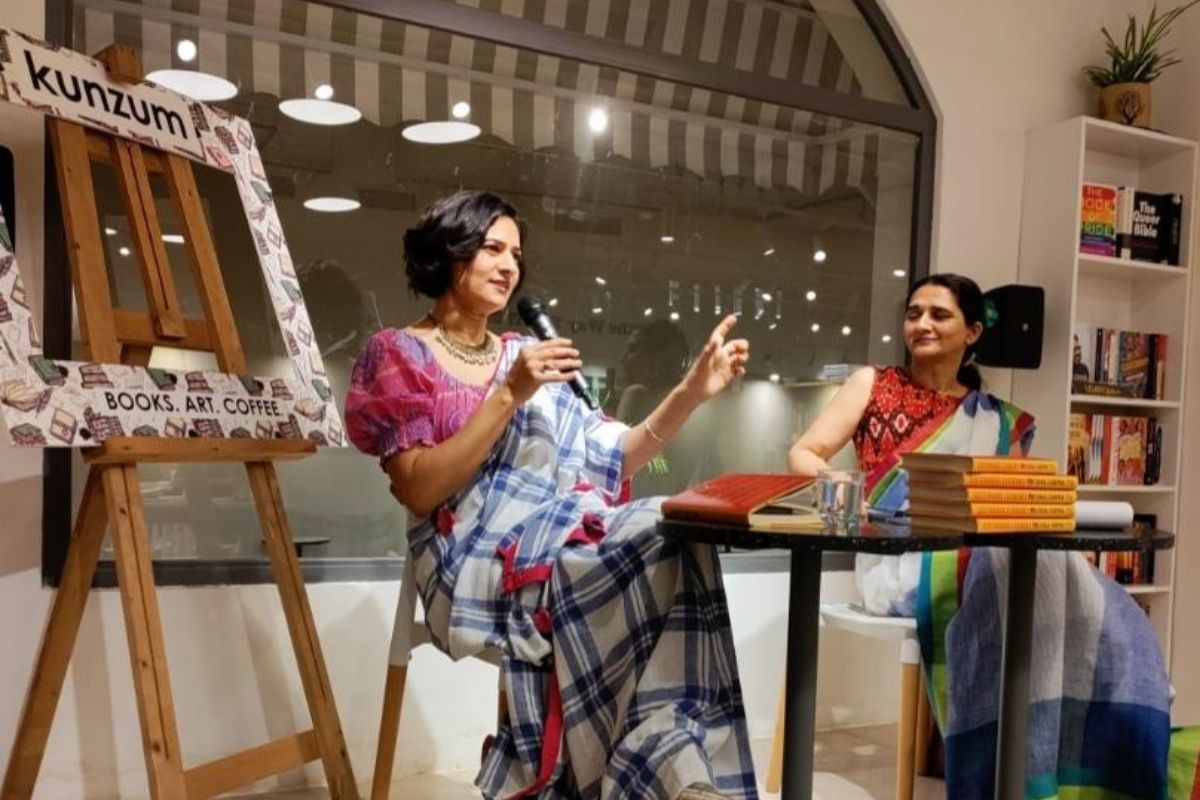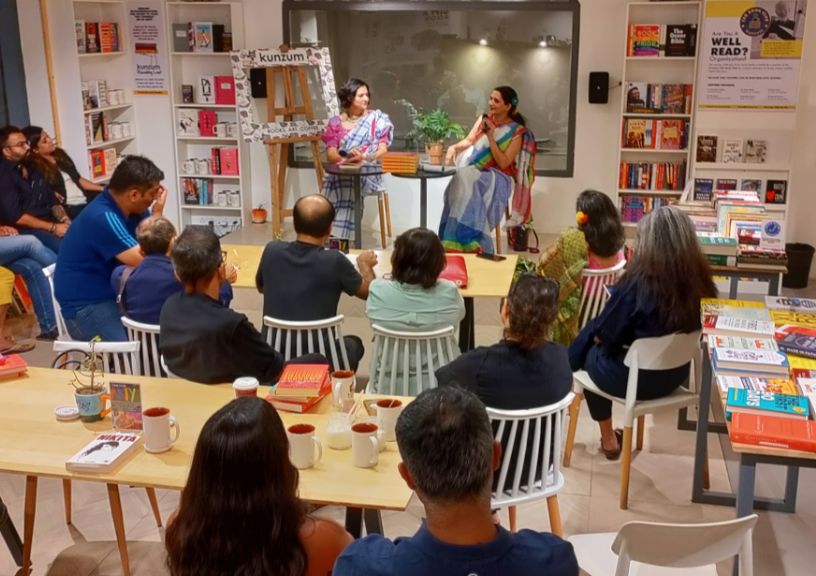
Founder of SheThePeople.TV and author of Sisterhood Economy, Shaili Chopra speaks with Kunzum about the often invisible contribution of women to the economy and the origin of the myriad stories in her latest book. By Sukaina Majeed
Journalist-turned-entrepreneur Shaili Chopra has already made a huge difference in women’s rights by bringing forth gender issues on her ground-breaking digital platform SheThePeople.TV, which boasts a reach of over 400 million. Chopra has also written five books, and recently, the author was at Kunzum for a book talk on her latest: Sisterhood Economy. Sukaina Majeed got into a conversation with the multi-hyphenate to understand the inspirations behind her book.
Excerpts from the conversation:
Kunzum: Tell us about your book, Sisterhood Economy. How did you find the stories you eventually included in the book?
Shaili Chopra: I started writing Sisterhood Economy with the idea of highlighting how women are a superpower, not because our statistics want them to be but because there are so many ways women contribute to the economy that we don’t recognise. If we start paying attention to those various aspects, not only will we realise their true potential but also bring to the headlines the debates about unpaid work, emotional investment, and gender pay gap. I wanted to look at some of these issues, but not through the usual lens of saying that there are more male CEOs than female CEOs. I wanted to go beyond what had become snack-able commentary in drawing rooms. That’s why Sisterhood Economy came about—to talk about the power of sisterhood that can transform economic outcomes for us. I’m a journalist who trained in economics, and I always look at issues through a practical lens of economy as opposed to a statistical lens.

Kunzum: Which story influenced you the most?
Shaili Chopra: The thing about anything influencing you is when it influences you—at which stage of your life, which moment of a rough period. There are a bunch of stories in this book. I have spoken to at least 500 people directly. The thing about stories is what you are going through at that point of your life—these stories may stay with you for other reasons. For example, I worked a lot in Mumbai, where I saw women who were ruthless about their need to work; they had no choice. [They were] Multitasking throughout the day and earning money for a house where there was nobody else working. I saw it as a selfless and driven approach. Women had no choice but to work.
Kunzum: Sisterhood Economy not only talks about the economy but also the socio-political barriers women face. What are the major changes you aim to bring through this book?
Shaili Chopra: While the book is called Sisterhood Economy, its core theme is actually hatke economics: the economics we haven’t studied, the economics we don’t know or don’t want to know. We are so stuck in the traditional methodology where everything is measured, whether it’s how women work, what they do, or what should be called work. One of the things I wanted to highlight are the X factors that help women get to a workplace—so that they can contribute to the traditionally measured economic numbers of the workplace. One will be able to do that once one is in a position to understand that the route to the office goes through: whether or not your children let you go, do you have someone to look after them, does your mother-in-law taunt you if you go to office, did your mother raise you to be a homely woman, and does technology hinder or help you? We are not making serious efforts towards finding answers to these questions. These are the questions I really wanted to answer.

Kunzum: Can you name three women authors you admire?
Shaili Chopra: Oh I love that question! Rebecca Traister, who has written All the Single Ladies: Unmarried Women and the Rise of an Independent Nation. I love Virginia Woolf. Who else? Oh! Caroline Criado-Perez, who has written Invisible Women.

1 thought on “We Don’t Recognise All The Ways Women Contribute To The Economy: Author Shaili Chopra”